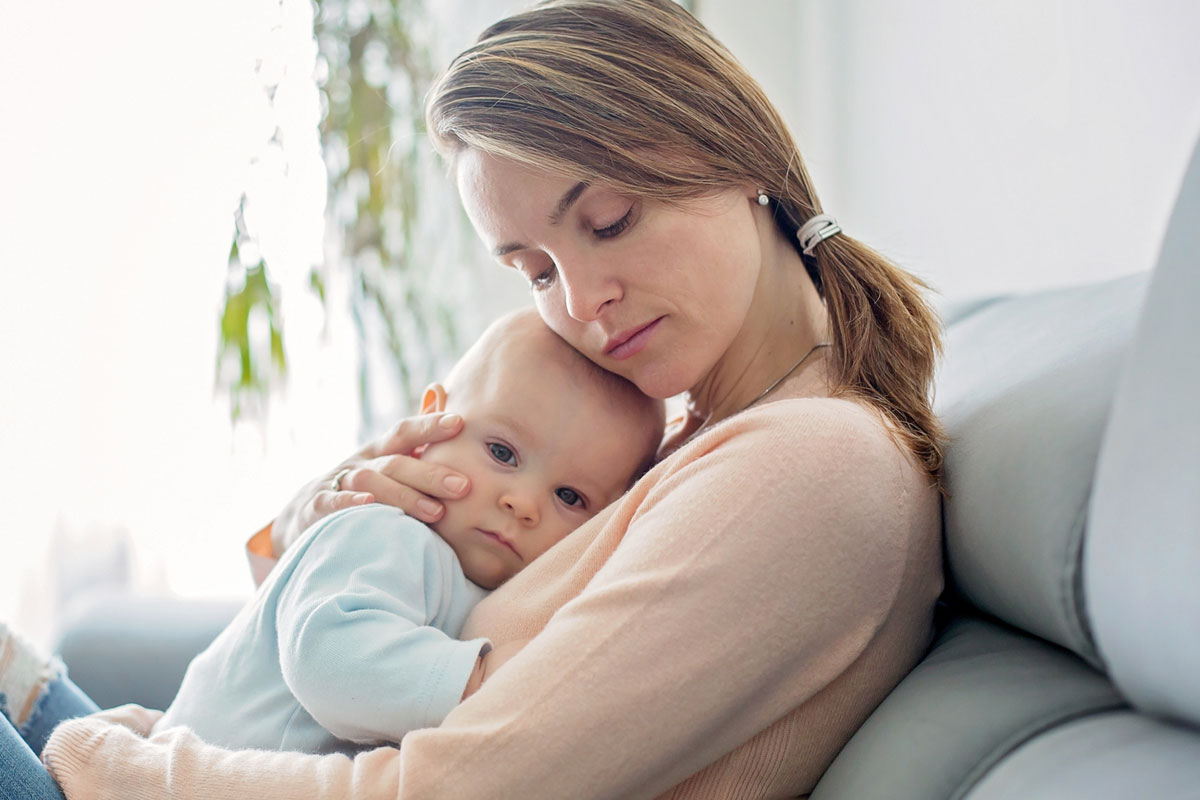The birth of a new baby is a joyous event, but for some mothers, the situation is far more complex.
While many women experience some mild mood changes during or after the birth of a child, 15% to 20% of women experience more significant symptoms of postpartum depression and other perinatal mood and anxiety disorders, according to Vanessa McMullan, LCSW, Supervisor at The Marks Family Right From The Start 0-3+ Center, one of North Shore Child & Family Guidance Center’s three locations.
McMullan and the other therapists who are part of the Guidance Center’s Diane Goldberg Maternal Depression Program work with clients whose symptoms may include feelings of anger, sadness, irritability, guilt, lack of interest in the baby, changes in eating and sleeping habits, trouble concentrating, thoughts of hopelessness and sometimes even thoughts of harming the baby or herself. These symptoms can also begin during pregnancy, not just after they have the baby.
“A lot of times when a woman is experiencing postpartum depression or anxiety, their partners don’t always know how to help, which can create a lot of stress on the relationship,” says McMullan. If it’s their first baby, many women felt unprepared for the possibility of depression and feel devastated when they experience these symptoms. “Nobody talks about this until it happens, which makes it harder to come to terms with,” says McMullan. “They can feel that they weren’t meant to be a mother.”
Maternal depression also has a negative impact on infant and child development, with research citing the potential of speech and language delays, behavioral difficulties, lower performance in school, and an inability to form trusting relationships as part of the spectrum of outcomes.
But there’s good news. Through our Diane Goldberg Maternal Depression Program, the Guidance Center provides rapid response and diagnosis for mothers suffering from postpartum depression and other perinatal mood and anxiety disorders. Our services include:
- Screening and assessments
- Individual, couple and family therapy
- Crisis intervention consultation
- Psychiatric evaluations and medication management, where needed
- Support groups
- Back-to-work family support
- Help with self-care
“One of our most important roles is to validate that, while motherhood can be wonderful in many ways, it’s OK to admit it can be really hard, especially in the beginning,” says McMullan. “With our programs, mothers can meet others like them and get a lot of support and encouragement. And the babies can play together, too. It provides a lot of opportunities for mothers to get out of the house and not feel so isolated.”
If you are a new mom—or know someone who is—and are worried about how you or she is feeling, please give us a call at (516) 626-1971. We can help.
Sources:
https://www.health.ny.gov/community/pregnancy/health_care/perinatal/maternal_factsheet.htm














